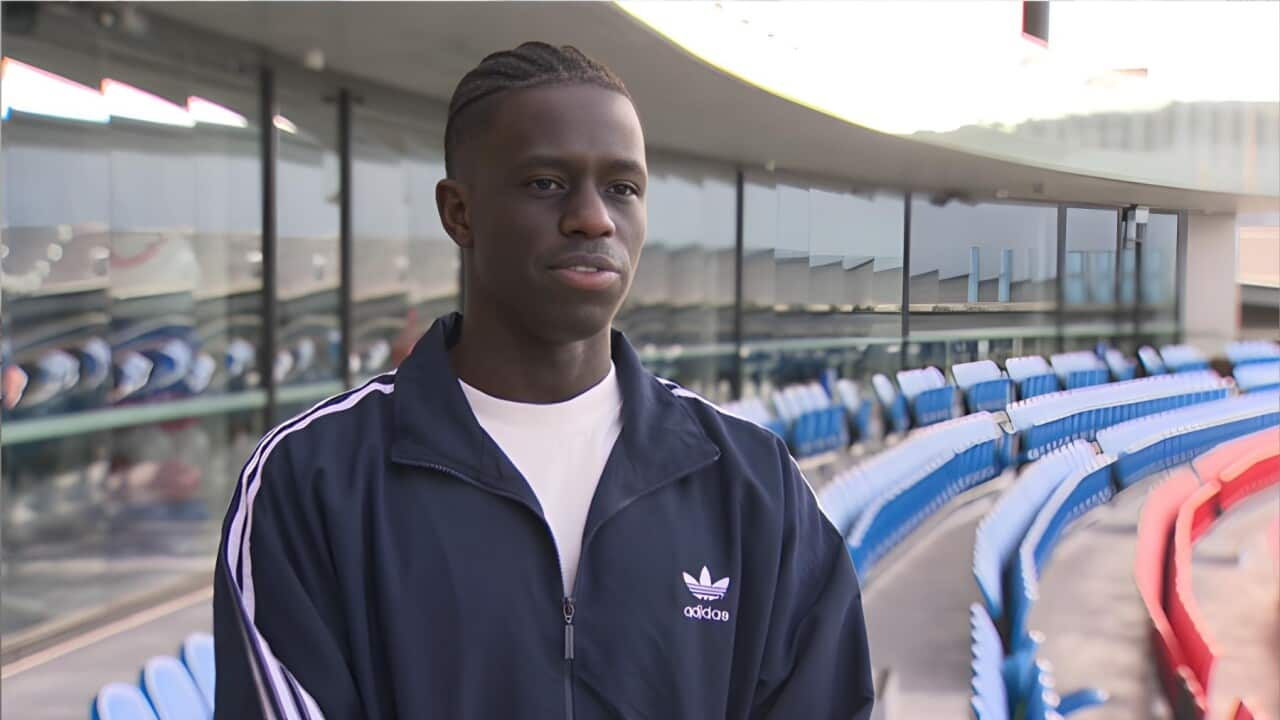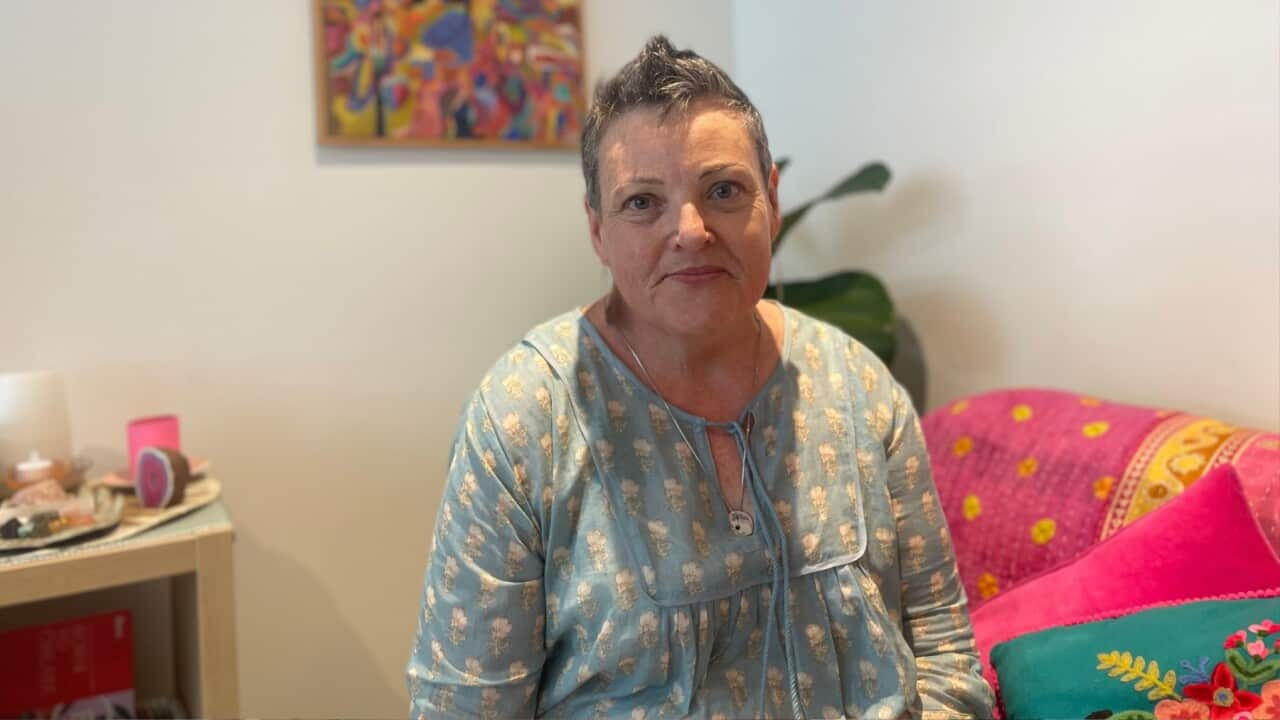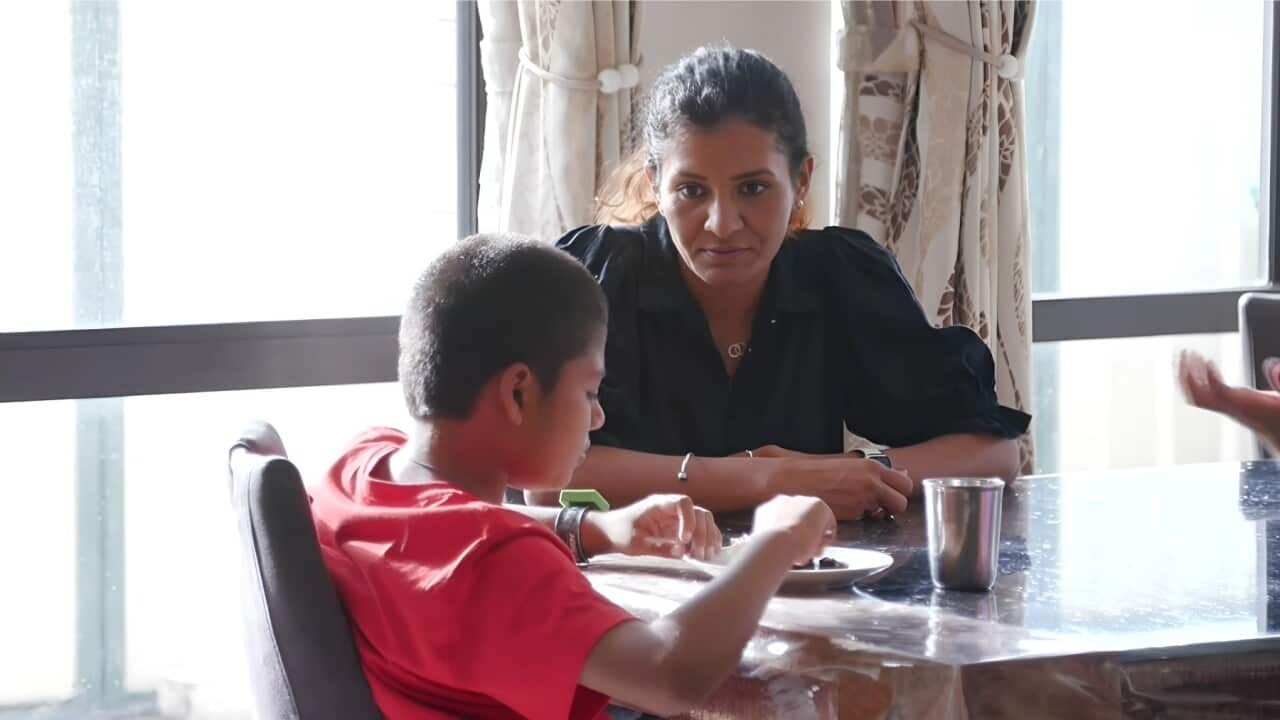TRANSCRIPT
AFL star Buku Khamis migrated to Australia from South Sudan at the age of six.
The now-24-year-old knows the difficulties men in his community face, opening up about their mental health.
As part of a new awareness campaign, the Western Bulldogs player told SBS about his own experiences growing up in a migrant family.
“I think it's just the way we were brought up, migrating to a different country, and just simply it's not how it went at home to be honest, like opening up and talking about how you feel. I think as a community, it's not something that really starts when you're young. I think that's why it's such a big issue for when we start to get a bit older and we don't know how to navigate through what we're going through.”
Mental health is an issue which transcends football odes.
Samoan N-R-L premiership winner Sam Tagataese says providing culturally appropriate care is essential for Australia's Pasifika community.
“So I think for me, is there the right resources, or is there the right education or pieces for people to understand, so that they have access to this, but even if they do have access, are there appropriate people or clinicians that are culturally aware to deliver or support this?”
Amar Singh was awarded the 2023 Local Hero at the Australian of the Year Awards.
As a volunteer and the president of charity group Turbans 4 Australia, he says he can see how the stigma around mental health is also a barrier.
“So we've got to be accommodating for people. There's barriers outside but also within the families and cultures and communities, that we need to address. It's ok to be not ok. I think this is the key message for people, if you need help, reach out.”
Among the Movember Institute's findings, 77 percent of African Australian men feel gender stereotypes affect their healthcare.
61 percent of Asian Australian men are less likely to have health conditions diagnosed, and men from culturally and linguistically diverse backgrounds have 70 percent higher odds of experiencing barriers to health service access.
The report also finds that men of non-English speaking backgrounds, particularly those on humanitarian visas, are at a higher risk of developing depression.
The Movember Institute attributes that to a lack of tailored support for different communities.
The Movember Institute's Global Director of Policy is Gautam Raju.
“The fact that some of the materials, the communication around when you're experiencing symptoms, when you need to go to the doctor to seek help, that is not made culturally relevant to some of these communities, and so they don't really have the information or are empowered to know when they have to go and seek help. That's one really big element. The other element here is that we just don't have enough research to actually understand where are the challenges. We know from the stories that we hear from the communities that we work with, that there are challenges, but we need to invest more in the research and more in the data, so we know what effective policies need to be put in place as well.”
Health advocates are now calling for more culturally appropriate services and education... as well as increased funding for multicultural healthcare research.
The CEO of Welcoming Australia, Aleem Ali, says those investments would bring far greater health outcomes.
“This is about the need for a whole of community response to address the health disparities that are faced by migrant and refugee communities, their families and the broader community. By improving their health, we don't just improve outcomes for them, we don't just improve outcomes for individuals - we improve outcomes for their families, their communities, for broader society, for their workplaces.”
The report will be presented to the Federal Government in Canberra next week.













